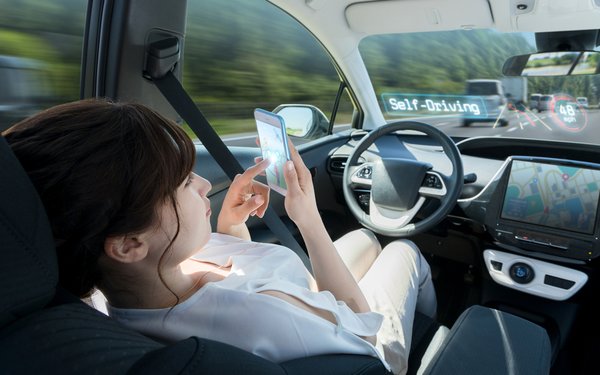
Most
consumers would prefer to ride in a self-driving car rather than one driven by a person, but that viewpoint is down the road.
A year from now, a quarter of consumers would take a self-driving
car over a human-driven one, but in 10 years, it soars to 64% of consumers.
These are among the findings of a study of 5,500 consumers in the U.S., U.K., France, Germany, Sweden and China
conducted by Capgemini Research Institute.
Viewpoints differ per country. For example, 30% of U.S. consumers say they would prefer to ride in a self-driving car a year from now, compared to
34% in China and 15% in Sweden.
In 10 years, 64% of consumers overall say they would prefer a self-driving vehicle, with 72% in China, 63% in the U.S. and 51% in France.
The
study also surveyed what emotion the thought of a self-driving car invokes. The top emotion was anticipation (59%), followed by surprise (52%), fear (48%), a sense of freedom (47%) and anxiety
(46%).
advertisement
advertisement
Positive emotions invoked by a self-driving car were highest in China (53%), followed by France (39%), Germany (38%), Sweden 37%) and the United States (36%).
Negative emotions
invoked by a self-driving car were highest in the U.K. (35%), followed by the U.S. (33%), Sweden (31%), Germany (30%), France (29%) and China (12%).
More than half (56%) of consumers said they
would be willing to pay a premium of up to 20% for a self-driving car while a quarter (25%) would not pay anything extra.
Traditional automakers may have an edge here, since 68% of consumers
say they would trust a traditional automaker to produce a self-driving car, compared to 39% trusting a new tech startup.
While optimism for driverless vehicles is relatively high, a lot can
change between now and those 10 years from now.